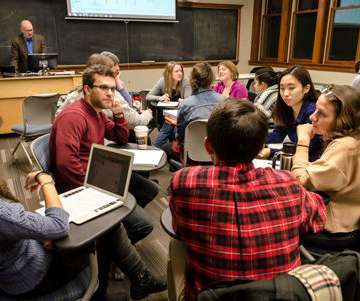Can Your Diet Be Too Healthy?
UM Wellness
AUGUST 14, 2017
By: Emma Slattery, ’18, University Health Center Nutrition Peer Educator You turn on the news, open Facebook, or read a magazine and are instantly bombarded by messages about food.

UM Wellness
AUGUST 14, 2017
By: Emma Slattery, ’18, University Health Center Nutrition Peer Educator You turn on the news, open Facebook, or read a magazine and are instantly bombarded by messages about food.

The LTC Blog
AUGUST 27, 2017
With the start of the new academic year nearly upon us, here are some relatively low stakes ways to help all students succeed in your courses. What approaches will you be using this term? Develop a learner-centered syllabus that clearly identifies what you expect of students and what students can expect of you: ( From “Weekly Digest #64: The Learning Centered Syllabus” by Sara Fulmer posted on The Learning Scientists Blog ).
This site is protected by reCAPTCHA and the Google Privacy Policy and Terms of Service apply.

UM Wellness
AUGUST 7, 2017
By: Ashley Statter, ‘18, University Health Center Nutrition Peer Educator Don’t let lactose intolerance stop you from getting your daily dose of calcium!

UM Wellness
AUGUST 21, 2017
By: Avital Schwartz, ’17, University Health Center Nutrition Peer Educator What is “meal prep”?

Speaker: Andrew Cohen, Founder & CEO of Brainscape
The instructor’s PPT slides are brilliant. You’ve splurged on the expensive interactive courseware. Student engagement is stellar. So… why are half of your students still forgetting everything they learned in just a matter of weeks? It's likely a matter of cognitive science! With so much material to "teach" these days, we often forget to incorporate key proven principles into our curricula — namely active recall, metacognition, spaced repetition, and interleaving practice.
Let's personalize your content